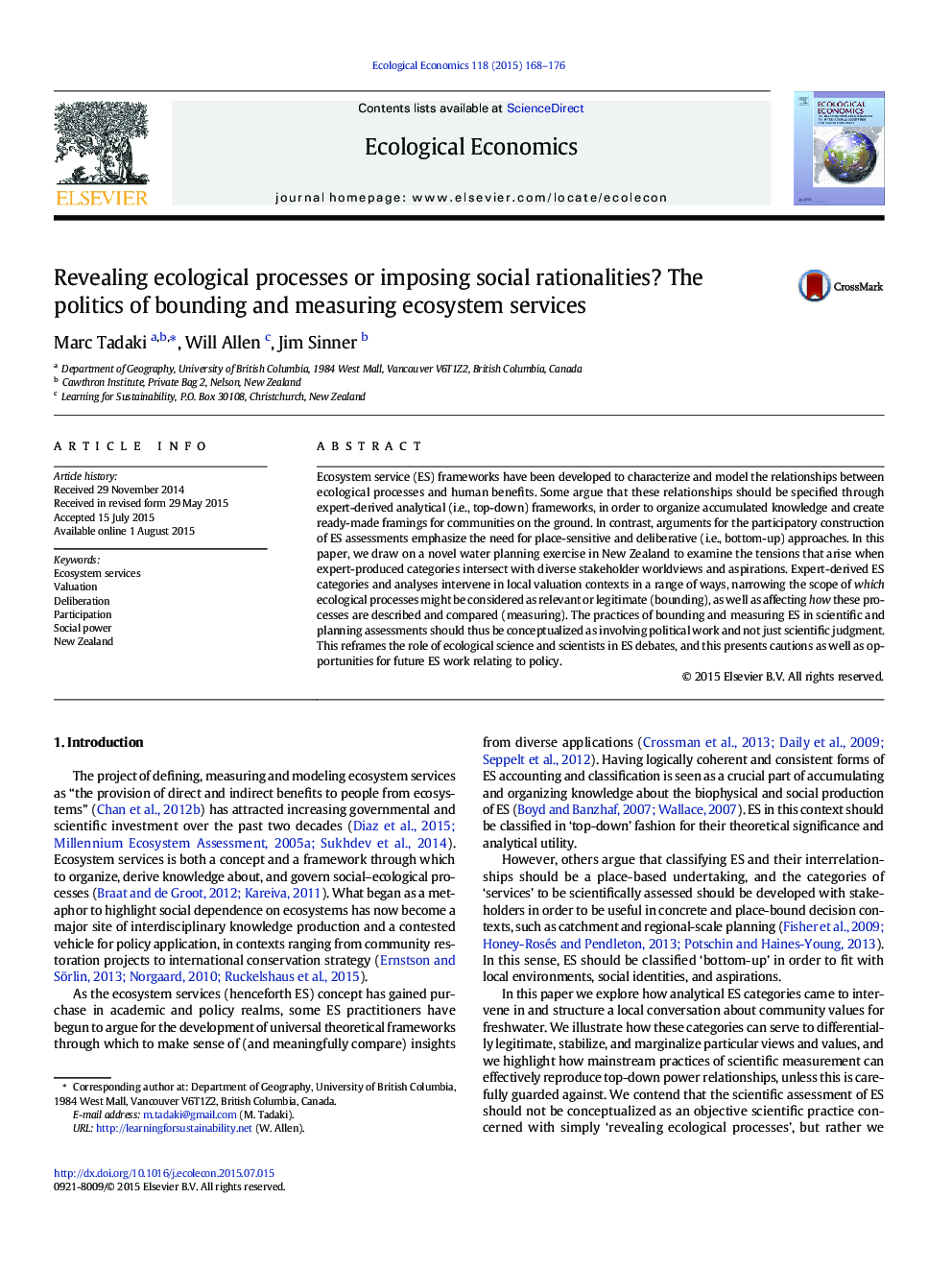| Article ID | Journal | Published Year | Pages | File Type |
|---|---|---|---|---|
| 5049369 | Ecological Economics | 2015 | 9 Pages |
Ecosystem service (ES) frameworks have been developed to characterize and model the relationships between ecological processes and human benefits. Some argue that these relationships should be specified through expert-derived analytical (i.e., top-down) frameworks, in order to organize accumulated knowledge and create ready-made framings for communities on the ground. In contrast, arguments for the participatory construction of ES assessments emphasize the need for place-sensitive and deliberative (i.e., bottom-up) approaches. In this paper, we draw on a novel water planning exercise in New Zealand to examine the tensions that arise when expert-produced categories intersect with diverse stakeholder worldviews and aspirations. Expert-derived ES categories and analyses intervene in local valuation contexts in a range of ways, narrowing the scope of which ecological processes might be considered as relevant or legitimate (bounding), as well as affecting how these processes are described and compared (measuring). The practices of bounding and measuring ES in scientific and planning assessments should thus be conceptualized as involving political work and not just scientific judgment. This reframes the role of ecological science and scientists in ES debates, and this presents cautions as well as opportunities for future ES work relating to policy.
